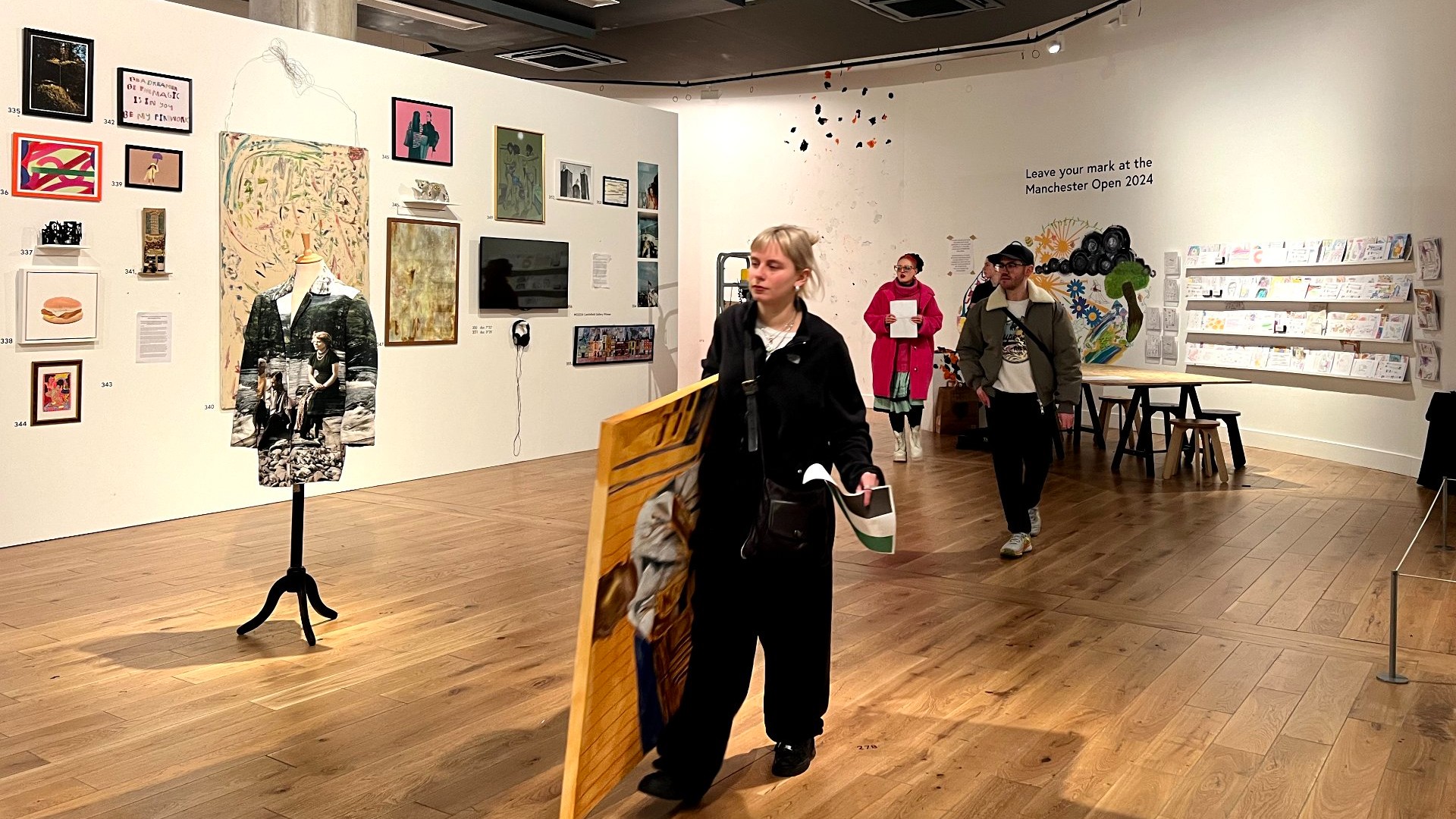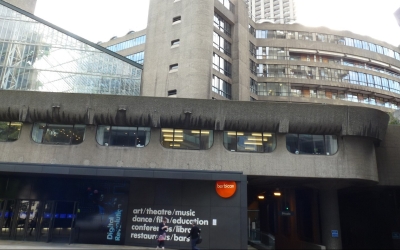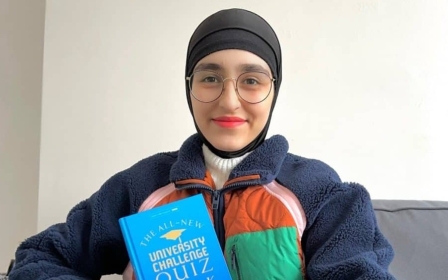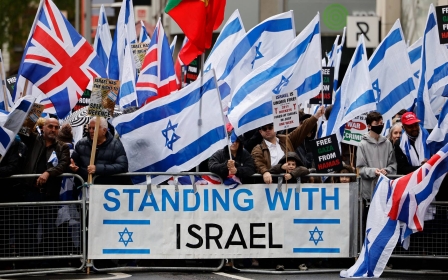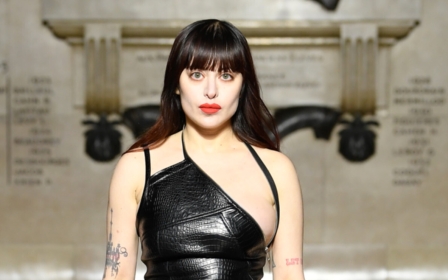How pro-Palestine artists are being cancelled by UK cultural institutions
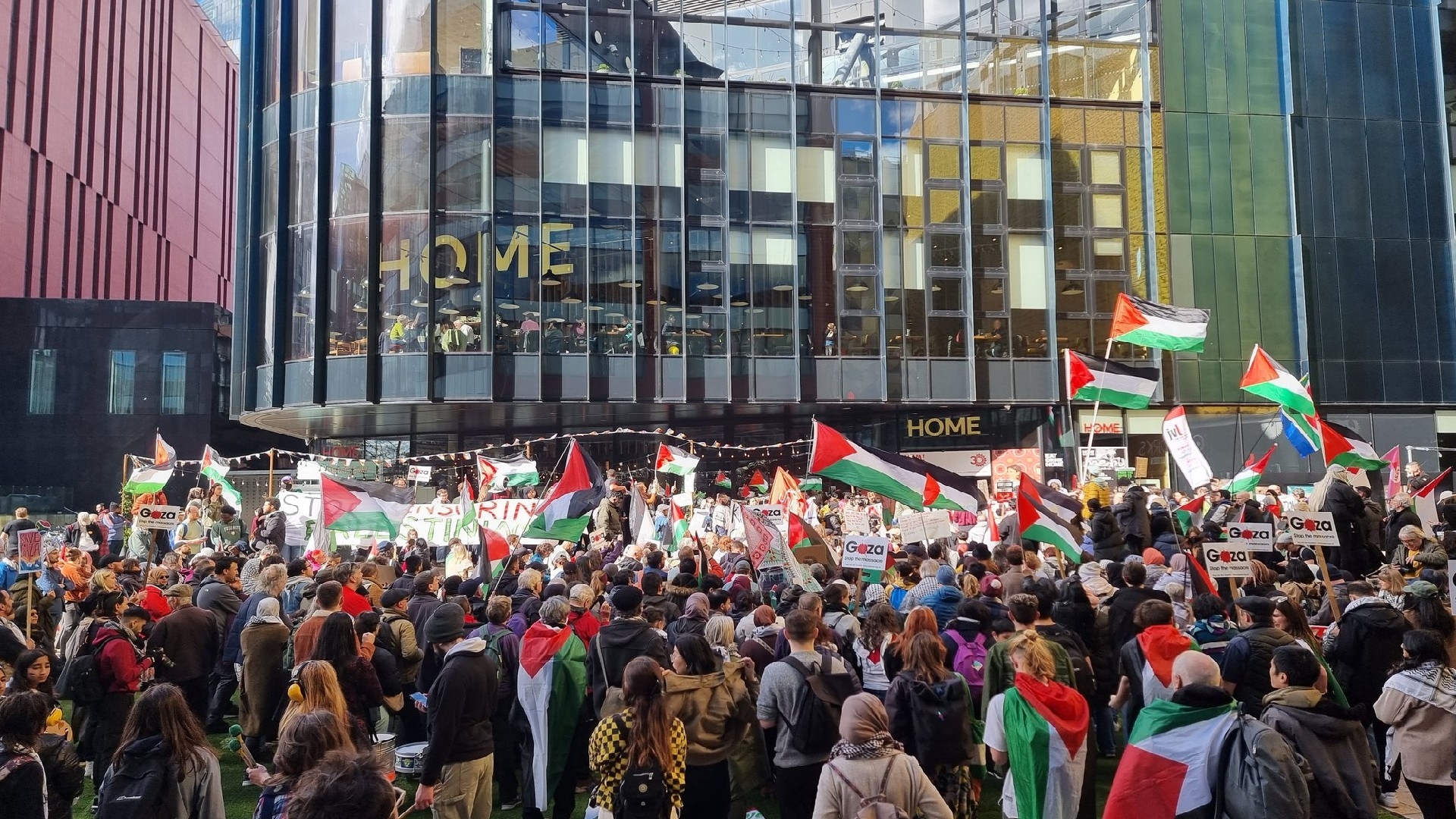
Even before 7 October, Taghrid Choucair-Vizoso, a Lebanese cultural worker residing in the UK, had been used to awkward questioning from arts venues when she pitched work about Palestine.
“I’ve had very reductive questions from some venues when pitching Palestinian artists’ work, which hasn't happened when I've pitched other artists,” she said.
“Before even giving me a chance to talk about the work, I’ve had questions about whether there was any balance by including an Israeli point of view, or if we foresaw any protests happening.”
Choucair-Vizoso once had a project pulled for featuring the word "Palestine" in its title.
Before October, these conversations tended to happen behind closed doors. However, since Israel’s war on Gaza began, a slew of venues, including the Arnolfini arts centre, the Barbican, and Chickenshed theatre have publicly pulled events featuring Palestinian or pro-Palestinian artists.
New MEE newsletter: Jerusalem Dispatch
Sign up to get the latest insights and analysis on Israel-Palestine, alongside Turkey Unpacked and other MEE newsletters
In each case the venues issued statements citing security concerns or the "complexity" of the situation in Gaza.
For Choucair-Vizoso, the speed and the scale of the censorship has intensified since October.
“I haven’t seen this happening before at this scale,” she told Middle East Eye. “It’s never been this public, and now during a genocide.
"It's very hard, because my village in the south of Lebanon has been destroyed and I have to deal with this," she said.
“I think there are so many [events] we don't know about. Imagine all the work that didn't even get to the programming stage.”
A pattern of intimidation
In March, HOME, a Manchester-based arts centre, announced the cancellation of a Palestinian literature event, Voices of Resilience, after the venue received a letter from the Jewish Representative Council of Greater Manchester & Region claiming that a featured writer, Atef Abu Saif, was antisemitic and a Holocaust denier.
“The venue was really supportive about it initially,” the event co-producer and director, Dani Abulhawa, told MEE. “We have a couple of high-profile actors involved in the show, so it drew more attention than a smaller production might have done… it sold out almost immediately.”
The venue then told the organisers they began receiving “hundreds” of complaints.
“We were told initially that they were getting a lot of complaints about the use of the word 'genocide', which was in the copy for the show,” Abulhawa said.
The organisers reluctantly agreed to remove the word from the copy.
However, the venue then raised concerns about the title of a book by Abu Saif, Don't Look Left: A Diary of Genocide, which they were planning to sell at the event to fundraise for charity.
Abulhawa and her colleagues agreed not to sell the book at the event.
Finally, the venue confirmed it was dropping the event, when it received a draft of a newspaper article which accused its management of antisemitism, over fears that protests would disrupt the show.
“Obviously, we were also concerned about safety… but we were extremely upset by these accusations because they're completely baseless,” Abulhawa said.
In a statement on its website, the venue cited security concerns and declared itself a “politically neutral space”.
This was the same reasoning cited by Bristol’s Arnolfini gallery when it cancelled two Palestine Film Festival events in November, saying that, as an arts charity, it could not engage in anything that could be “construed as political activity”.
In the case of HOME, the venue was forced to reinstate the event after over 300 theatremakers and cultural workers, including Maxine Peake and Asif Kapadia, wrote an open letter and 100 artists removed their work from exhibitions at the venue in protest.
For Abulhawa, her experience with HOME was not an isolated incident, but “part of a pattern of intimidation".
“Palestinian voices are being silenced in the process of venues responding with [often] kneejerk reactions to any accusations, without investigating them first,” she said.
A familiar script
For Saeed Taji Farouky, a Palestinian-British filmmaker who has been campaigning against the silencing of Palestinian work by UK arts institutions, this pattern predates 7 October.
“We hear the same bullshit over and over again, it follows a very familiar script,” Farouky said.
“The event is planned, it's marketed, you would start selling tickets in some cases. And then [the venue] receives a letter often [from] groups claiming to represent Jewish communities,” Farouky told MEE.
“These letters will make really spurious claims of antisemitism, and in most cases, that's enough to terrify the venue. And they cancel the show,” he said.
According to Farouky, the venues often cite security reasons for the cancellation.
“These are venues that have hosted events for Ukraine… about trans visibility,” Farouky said.
“If you are willing to stand up for these other issues, why is Palestine an exception?”
For Farouky, who has been campaigning on the issue for 30 years, the rate of event cancellations has intensified, echoing Choucair-Vizoso's feeling.
“It’s so much more blatant now,” he said.
“Any of the groups that are working hard to suppress Palestinian voices have realised how effective their strategy is… the minute they see the word Palestine, they know that all they have to do is write a poorly worded email [and] they'll pull the plug.”
But according to Palestinian artist Larissa Sansour, the rates of censorship are hard to quantify, as many artists could be dropped before a programme is made public.
“It’s impossible to know about the cases where an artist was shortlisted for an event, but conveniently removed from the list to reduce the likelihood of political controversy,” Sansour told MEE.
“How does one even start to assess the frequency of institutions deciding not to take a chance on a Palestinian artist?”
A chilling effect
In January, Arts Council England released new guidelines warning organisations that “overtly political or activist statements” could incur “reputational risk” and breach funding agreements.
Following a fierce backlash, the funding body was forced to revise the guidelines, clarifying that organisations would not be penalised for working with artists who make political statements.
Despite the retraction, artists who spoke to MEE felt that the guidelines would have a chilling effect on venues, deterring them from featuring Palestinian work.
'Where are the leaders of cultural institutions that are willing to stand up for themselves and our communities, and what's morally right?'
-Saeed Taji Farouky, filmmaker
“If you read it carefully, [organisations] still have to manage risk around artistic work that deals with ‘controversial’ issues or topics. What is deemed controversial and by whom?” Choucair-Vizoso told MEE.
“Organisations could be disincentivised from putting on Palestinian work [because] it could be a lengthy, exhausting and traumatising process to go through," she said.
According to Farouky, the venues he had negotiated with frequently cited fears over being reported to the Charity Commission or having their Arts Council funding revoked.
“The argument we always hear is: if we were to stand up for this case, we might risk our funding,” Farouky told MEE.
“Where are the leaders of cultural institutions that are willing to stand up for themselves and our communities, and what's morally right, and what's legally defensible?” he said.
“This is not just a venue cancelling an event. I think the decisions we make now are going to reverberate for at least a generation [and influence] the cultural makeup of Britain.”
Middle East Eye delivers independent and unrivalled coverage and analysis of the Middle East, North Africa and beyond. To learn more about republishing this content and the associated fees, please fill out this form. More about MEE can be found here.


